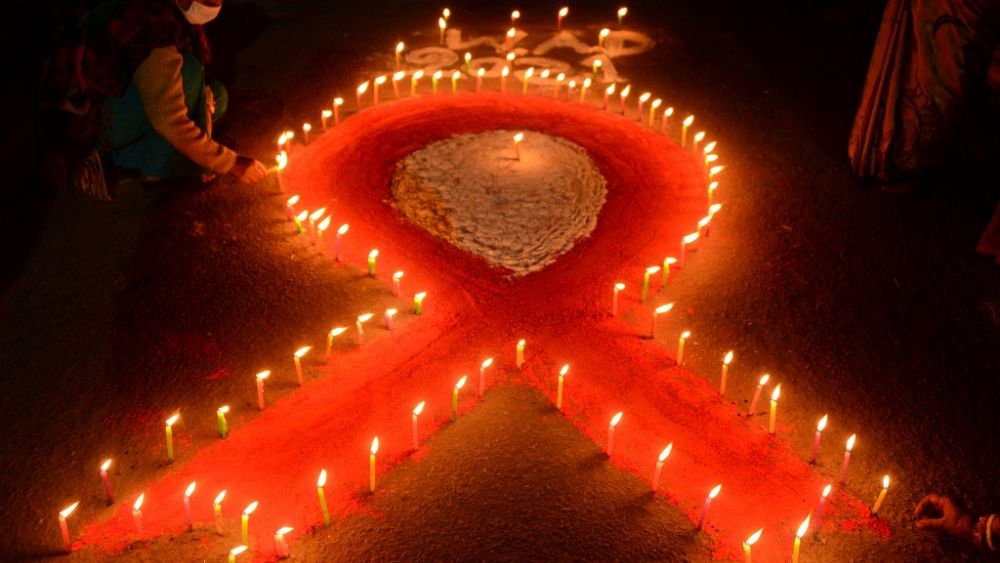
40 years ago, on June 5, 1981, five cases of pneumonia due to a fungus then called “pneumocystis carinii”, linked to a suppression of the immune system, in five young people from Los Angeles, were reported and are considered the first official registry of AIDS patients.
The fight is not over yet even if some progress has been made, but the situation is still very difficult, especially during the current pandemic
COVID and AIDS have a heavy impact on the lives of millions of people, but also on the economy of entire countries and continents as Françoise Vanni, Head of External Relations and Communications of the Global Fund, explains: “Covid has completely disrupted health systems and has disrupted all the other health programs and disrupted the entire economies and societies of the African continent.
“What we see is that Africa is suffering from inequity in terms of the distribution of the tools to help confront COVID-19, whether in terms of access to vaccines, which remains obviously extremely inequitable, but also access to equally important tools such as protective equipment.”
During the first year of the COVID pandemic, 40 countries, mostly in Africa, reported a decline in HIV testing, vital to preventing the spread of the virus.
The reduction of prevention programs in the current health crisis and the closure of schools, where many of UN prevention programs are taught, has been a severe blow to UNAIDS, which warns that 7.7 million could still die this decade only from AIDS if measures are not resumed or even accelerated.
Unfortunately, worldwide attention is now focused on COVID, with resources for the fight against AIDS drained dramatically.
Dr. Meg Doherty, Director of Global HIV, Hepatitis and Sexually Transmitted Infections Programmes at the WHO says: “HIV has been the very first pandemic we ever had to deal with over 40 years ago when we identified the virus, and since then, we’ve been working to try to end AIDS as a public health threat.
“But what we’re seeing now is with COVID, that attention has gone to this new virus that is affecting everybody’s life. And we have seen both direct and indirect impacts on our actions towards ending the HIV epidemic. We’ve seen that testing for HIV has gone down. A recent study showed an approximately 22% reduction in the amount of testing that’s being done, as well as prevention and mother-to-child transmission options to reduce transmission to a child, has been affected.
“We’ve also seen that COVID itself affects people living with HIV and that they’re at an increased risk for severe disease and death. People living with HIV are immunosuppressed and they should actually be on treatment so that they can be well protected from transmitting HIV, for staying healthy, and also from being protected from acquiring COVID or severe COVID. Currently, right now, we have 38 million people living with HIV and 28 million people on antiretrovirals. So we still have about 10 million more people to get tested and to have access to treatment.”
Neglecting the risks that HIV patients may more easily get sick with COVID could cause a massacre according to Dr. Dogherty.
“Recent reports coming out of UNAIDS indicates that if we don’t use all the tools in our toolbox if we don’t use all of the strategies that we have, we could see an increasing rise in deaths of up to 7 million or 8 million more deaths in the next 10 years,” she said.
According to WHO statistics, AIDS has caused almost 35 million deaths (seven times more than those caused so far by COVID-19), although mortality has fallen since annual highs in infections and deaths were reached some 20 years ago.
Since 1998, the year in which there were more HIV infections (2.8 million), these have been reduced by almost half and deaths have fallen to a third of what they were (680,000 last year).
Vital in this has been the number of people with access to antiretrovirals that has risen from just 560,000 at the beginning of this century to more than 28 million today.
Africa continues to account for a large part of HIV-positive people (25.3 million) and AIDS-related deaths (460,000), followed by Asia (5.7 million HIV carriers and 140,000 deaths), according to 2019 figures.
The European Union is at the forefront of the fight against AIDS, not only in Africa but also in Latin America and in many other regions of the world. Brussels is one of the Global Fund’s strategic partners trying to keep attention on other pandemics. So that even the rich countries understand that resolving pandemics in the so-called third world has an impact also in the first world.
Françoise Vanni of Global Fund says: “We have invested more than four billion dollars to more than 120 countries to help them respond to COVID 19 and protect programs against HIV, TB, and malaria against the impact of the pandemic.”
The United Nations has set itself the goal of defeating AIDS by 2030, even if another enemy, Covid, threatens this project. We must therefore not let our guard down because we must not forget that not only the coronavirus, but also other diseases kill and threaten our societies.